PCB Full Form, Latest Books- Free PDF
PCB stands for “Physics, Chemistry, and Biology.” It refers to the combination of subjects typically studied by students pursuing careers in the field of science, particularly in the areas of medicine, healthcare, and life sciences.
Embarking on the journey of preparing for medical entrance exams like NEET (National Eligibility cum Entrance Test) is both exciting and challenging. Aspiring doctors and healthcare professionals need to master the subjects of Physics, Chemistry, and Biology (PCB) to excel in these competitive examinations. In this blog post, we’ll delve into the realm of PCB books specifically tailored for Class 11 students preparing for NEET, exploring their significance, contents, and how they can pave the way to success in medical entrance exams.
Physics
Physics forms a crucial part of the NEET syllabus, covering topics such as mechanics, electromagnetism, optics, thermodynamics, and modern physics.
Here are some recommended physics books for NEET preparation:
Concepts of Physics" by H.C. Verma
- This book is renowned for its clear explanations and conceptual approach to physics.
- It covers a wide range of topics with numerous solved examples and practice questions.
- H.C. Verma’s book is ideal for building a strong foundation in physics and developing problem-solving skills.
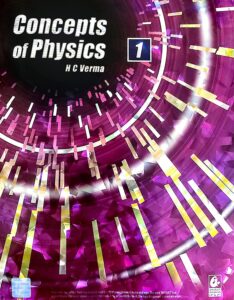
"Fundamentals of Physics" by Halliday, Resnick, and Walker
- This comprehensive textbook provides in-depth coverage of physics concepts with a focus on clarity and rigor.
- It includes numerous real-world examples, illustrations, and exercises to help students understand and apply theoretical principles.
- Halliday, Resnick, and Walker’s book is suitable for students seeking a deeper understanding of physics concepts.
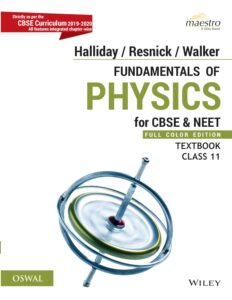
"NEET Physics Guide" by Arihant Publications
- Specifically designed for NEET aspirants, this guidebook covers the entire physics syllabus in a concise and easy-to-understand manner.
- It includes chapter-wise theory, solved examples, practice questions, and previous years’ NEET questions for comprehensive preparation.
- Arihant’s NEET Physics Guide is an essential resource for students aiming to ace the physics section of the NEET exam.
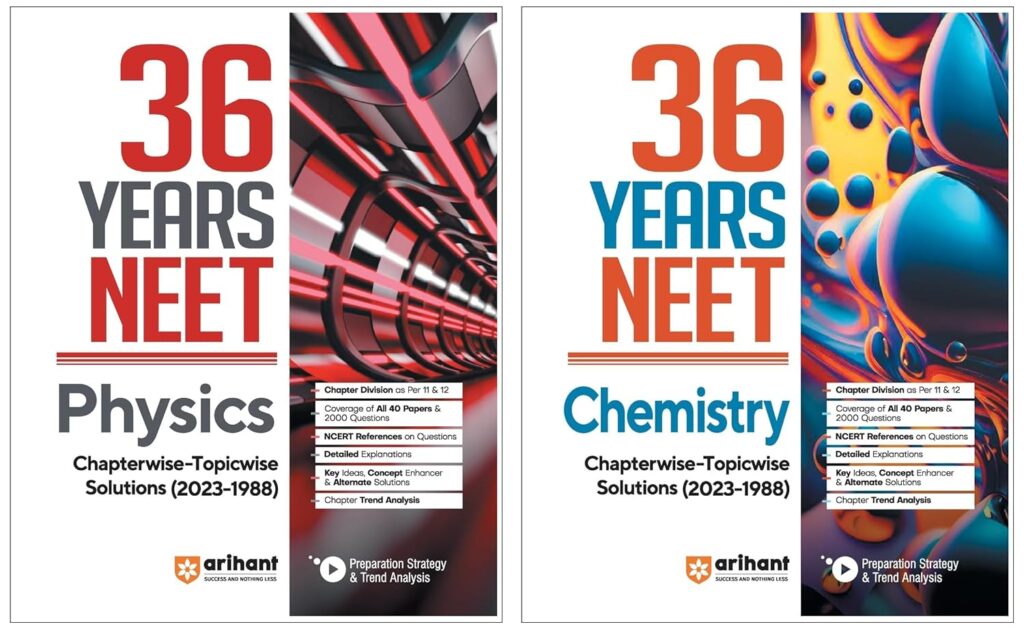
Chemistry
Chemistry is another crucial subject for NEET preparation, encompassing physical, organic, and inorganic chemistry.
Here are some recommended chemistry books for NEET aspirants:
"Physical Chemistry" by O.P. Tandon
- This book provides a comprehensive coverage of physical chemistry concepts required for NEET preparation.
- It includes theoretical explanations, solved examples, and practice questions to reinforce understanding and problem-solving skills.
- O.P. Tandon’s book is highly recommended for NEET aspirants seeking clarity and depth in physical chemistry.
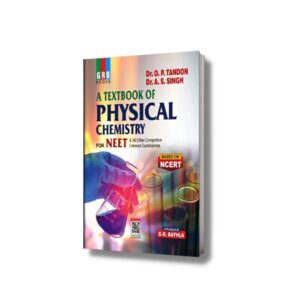
"Organic Chemistry" by Morrison and Boyd
- Widely regarded as a classic textbook, Morrison and Boyd’s Organic Chemistry offers a comprehensive treatment of organic chemistry principles.
- It covers topics such as nomenclature, stereochemistry, reaction mechanisms, and organic synthesis in detail.
- The book includes numerous solved problems and exercises to help students master organic chemistry for NEET.
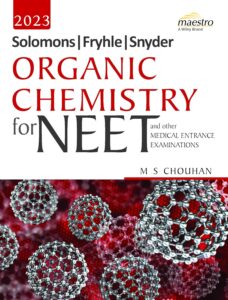
"Modern's ABC of Chemistry for NEET" by S.P. Jauhar
- This book is specifically designed for NEET aspirants and follows the latest syllabus prescribed by the National Testing Agency (NTA).
- It covers all three branches of chemistry – physical, organic, and inorganic – with concise theory and ample practice questions.
- S.P. Jauhar’s book is a popular choice among NEET aspirants for its comprehensive coverage and user-friendly format.
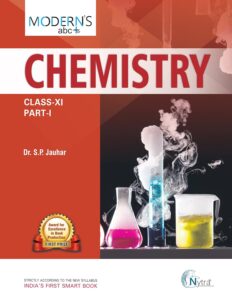
Biology
Biology is the most critical subject for NEET, covering topics such as zoology, botany, genetics, ecology, and human physiology.
Here are some recommended biology books for NEET preparation
"Biology: Class 11" by NCERT
- NCERT textbooks are considered the Bible for NEET biology preparation due to their clarity, accuracy, and alignment with the NEET syllabus.
- Class 11 Biology by NCERT covers topics such as diversity in the living world, structural organization in animals and plants, cell structure and functions, and plant physiology.
- NCERT books are essential for building a strong foundation in biology and understanding fundamental concepts required for NEET.
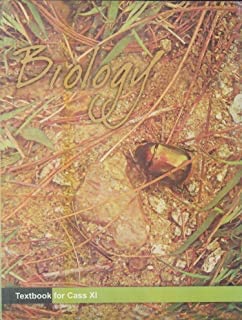
"Trueman's Elementary Biology" by K.N. Bhatia and M.P. Tyagi
- Trueman’s Elementary Biology is a comprehensive textbook that covers the entire NEET biology syllabus in a detailed yet understandable manner.
- It includes elaborate explanations, diagrams, and illustrations to aid comprehension and retention of concepts.
- Trueman’s book is highly recommended for NEET aspirants seeking an in-depth understanding of biology topics.
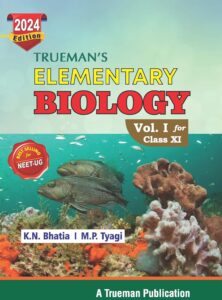
"Objective NCERT at Your Fingertips - Biology" by MTG Editorial Board
- This book provides chapter-wise concise theory, solved examples, and multiple-choice questions (MCQs) based on NCERT biology for NEET.
- It serves as an excellent revision tool for NEET aspirants, helping them gauge their understanding and practice MCQs similar to those asked in the NEET exam.
- MTG’s Objective NCERT at Your Fingertips is a must-have resource for NEET biology preparation.
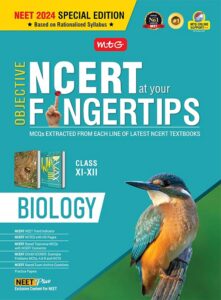
Tips for Effective Utilization of PCB Books for Class 11 and NEET Preparation
- Start Early: Begin your preparation well in advance to cover the entire syllabus thoroughly and revise multiple times.
- Understand Concepts: Focus on understanding fundamental concepts rather than rote memorization to solve complex problems.
- Practice Regularly: Solve practice questions, previous years’ papers, and mock tests to assess your progress and identify areas for improvement.
- Use Multiple Resources: Supplement your study with online resources, video lectures, and coaching materials to gain diverse perspectives and insights.
- Stay Consistent: Maintain a consistent study schedule, balance your time effectively between subjects, and take regular breaks to avoid burnout.
Effective Time Table for PCB
Morning Routine (6:00 AM – 8:00 AM):
- Wake up and freshen up.
- Engage in physical exercise or yoga for 30 minutes to stay active and energized.
- Have a healthy breakfast to fuel your body and mind for the day ahead.
Study Session 1 (8:30 AM – 11:30 AM):
- Start with a core subject like Physics for 2 hours.
- Take short breaks every 30-40 minutes to stay focused and avoid fatigue.
- Review previous day’s notes and complete assigned homework or practice problems.
Mid-Morning Break (11:30 AM – 12:00 PM):
- Take a 30-minute break to relax, hydrate, and recharge your mind.
- Stretch your body, listen to music, or engage in a leisure activity to refresh yourself.
Study Session 2 (12:00 PM – 2:00 PM):
- Focus on another core subject like Chemistry or Biology for 2 hours.
- Use active learning techniques such as summarizing, highlighting, or teaching concepts to reinforce understanding.
- Work on assignments, projects, or practical experiments as applicable.
Lunch Break (2:00 PM – 3:00 PM):
- Enjoy a nutritious lunch to replenish your energy levels.
- Take a short walk or engage in light physical activity to aid digestion and promote mental clarity.
Study Session 3 (3:00 PM – 5:00 PM):
- Allocate this time for revising topics covered earlier in the day or in previous classes.
- Review notes, diagrams, and mnemonic devices to consolidate learning and improve retention.
- Practice solving sample papers or previous years’ question papers to gauge your understanding and test-taking skills.
Evening Break (5:00 PM – 6:00 PM):
- Take a one-hour break to unwind and relax.
- Spend quality time with family, pursue hobbies, or engage in recreational activities to de-stress and rejuvenate.
Study Session 4 (6:00 PM – 8:00 PM):
- Dedicate this time to revising subjects that require extra attention or are challenging for you.
- Seek clarification on difficult concepts from teachers, classmates, or online resources.
- Focus on strengthening weak areas and improving problem-solving skills through targeted practice.
Dinner Break (8:00 PM – 9:00 PM):
- Have a light and nutritious dinner to fuel your body for the evening study session.
- Avoid heavy or oily foods that may cause drowsiness and affect your concentration.
Night Study Session (9:00 PM – 11:00 PM):
- Review the day’s learning objectives and prioritize tasks for the next day.
- Spend this time revising important formulas, diagrams, and key concepts.
- Reflect on your progress, identify areas for improvement, and set specific goals for the following day.
Bedtime Routine (11:00 PM – 6:00 AM):
- Wind down with a calming activity like reading or listening to soothing music.
- Create a peaceful sleep environment by dimming lights, reducing screen time, and maintaining a consistent bedtime routine.
- Aim for 7-8 hours of quality sleep to allow your body and brain to rest and recharge for the next day.
Studying Physics, Chemistry, and Biology opens doors to endless possibilities in the fields of science, medicine, and research. By delving into the realm of PCB books and mastering the fundamental principles of these subjects, you can lay the foundation for a successful academic and professional journey. Whether you’re aiming to become a doctor, biologist, physicist, or chemist, the knowledge and skills gained from studying PCB will empower you to make meaningful contributions to society and the world at large. So, dive into the world of PCB books, explore the wonders of science and biology, and let your curiosity and passion for learning guide you on this educational adventure.
Thanks For Visiting ProStudent
Frequently Asked Questions (FAQ's)
The recommended books for NEET preparation vary based on individual preferences and learning styles. However, popular choices include HC Verma for Physics, OP Tandon for Chemistry, and Campbell & Reece for Biology.
While NCERT books provide a strong foundation for NEET preparation, supplementing them with additional reference books and study materials is advisable to cover the entire syllabus comprehensively.
Consider factors such as content coverage, clarity of explanations, practice questions, and alignment with the NEET syllabus when selecting PCB books. It’s also helpful to read reviews and seek recommendations from teachers and experts.
Studying from multiple books can provide a broader perspective and deeper insights into complex topics. However, it’s essential to strike a balance and avoid overwhelming yourself with too many resources.
Allocate specific time slots for each subject and focus on studying one topic at a time. Use PCB books for conceptual understanding, practice questions, and revision, and supplement your study with online resources and mock tests for comprehensive preparation.

